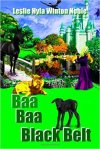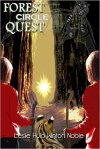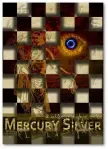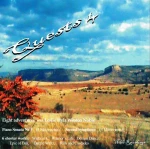We are kidless until Christmas Eve – Younger Daughter and Junior Granddaughters have flitted off to near Cape Town to visit other Grannie and aunts and cousins. That has given me a bit of time to ruminate about the public holiday which fell today.
I grew up to regard 16th December in South Africa as ‘Dingaan’s Day’, but after hearing that it commemorated The Battle of Blood River, where only Dingaan’s generals were represented and got rather badly clobbered, I started wondering why. The alternative name, the Day of the Covenant, made more sense. This came from a spot of bribery to God a few days before on the part of the Voortrekkers then under Sarel Cilliers, making up the force of 460 men under Boer general Andries Pretorius who were involved in the 1838 battle. They promised to build a church in gratitude if they won.
They really did need a miracle – the force of Boer General Andries Pretorius numbered 460 while the Zulu impis coming up against them were at least 30,000 warriors. Even with two cannon firing buckshot, and a good stock of single-shot muskets and ammunition, it was a tall order. Still, after the battle there were 3,000 dead Zulus in three hours as against three wounded Trekkers – one being friend Andries who got stabbed in the hand by an assegai. Presumably this was after two hours of shooting down waves of attackers, when the Trekkers got bored so he rode out with them to break up the attacking formations, finally putting them to flight. Then they hunted the fleeing.
A church was duly erected in Pietermaritzburg.
Dingaan had actually brought it upon himself, though. He had Piet Retief and his followers bumped off during a friendly session of beer drinking following the apparent signing of a treaty granting land to the Trekkers (as is usual with history, there is argument about the fine detail including whether the treaty document was genuine – only a copy survives). According to some witnesses, this wasn’t as much of a total massacre as is commonly made out. Although the Trekkers had left their guns outside as a matter of courtesy, they are still said to have done considerable damage with their penknives, and one witness later captured reported that an attacker had died for every Trekker killed. The Retief party had fought their way clear of the first regiment sent to deal with them and another had to reinforce it.
Many are the explanations for this act by Dingaan, including ones that have him expecting treachery from them and therefore pre-empting it with some of his own, but whatever the true explanation it wasn’t exactly cricket. And it seriously annoyed the Trekkers, who were out to get him in a big way from then onwards. However, the old name for the holiday was still misleading. It should have been ‘Just Not Dingaan’s Day’.
Anyway, the idea of commemorating the event has never gone down too well with the Zulus, particularly as part of the blame lies with their hero Shaka and his silly stabbing assegais which were totally unsuitable in that sort of battle, and the holiday is now known as the Day of Reconciliation. Judging by today’s potentially inflammatory utterances by our esteemed President Zuma in Port Elizabeth – in normal jocular denial after slaughtering the SA economy in two fell swoops with a sudden epidemic of hiring and firing Ministers of Finance – it should be renamed the Day of Wreck-one-silly-nation.
Zumbie was saying how lucky the whites were that they didn’t get it in the neck after independence. In other words, why don’t we give it to them now?
It rather annoys me the way that Apartheid is made out to be the worst evil that ever happened to anyone anywhere anyhow. It was awful, certainly. But the apartheid mob were pussycats compared with African and other regimes quite recently carrying out some spectacular spots of genocide, quite apart from other current examples of intolerable oppression.



















It’s been a while since I’ve had a history lesson and this one was quite interesting.
As awful as Apartheid was, at least things worked then. Can’t say the same about things now…
LikeLike
Even large chunks of the workforce are far more effective at being a strike-force.
LikeLike
Skerp waarneming… wens jy het ‘n antwoord gehad
LikeLike
Ek het nie eers die regte kwessie!
LikeLiked by 1 person
Very well written, Col. “Just not Dingaan’s Day” made both hubby and I guffaw. 😀 Your last paragraph is undeniably true., yet when Zuma gets on the podium, he always resorts to ‘white bashing’ and ‘bring me my machine gun’ to make sure he keeps the revolution alive. There’s no room for reconciliation in his rhetoric. 😦
LikeLike
His vocabulary is limited, so he mixes up
‘reconciliation’ with ‘reckoning’. Only, what he does is more like ‘wreck-oning’.
LikeLiked by 1 person
Absolutely, Col. 😟
LikeLike
All unfamiliar stuff to me, though the basic background to South Africa’s emergence and internecine struggles is just about discernible through the fog of memory and age.
LikeLike
Some fairly hectic and memorable stuff did happen in this part of the world – worth reading about if you can increase your present rate to ten books a week.
LikeLiked by 1 person
Just revisiting King Solomon’s Mines (Quatermain sets out from Durban, does he not?) and the mature version of me is surprised at how much informed content Haggard had included in his fiction. But it is a fiction, and a huge contrast to Conrad’s Heart of Darkness which, though half a continent away from South Africa, presents a very jaundiced view of European incursions, albeit in semi-autobiographical form.
When my present reading challenge is over I intend to consume a little more non-fiction than I have during 2015, and shall definitely include some African history.
LikeLike
I was reading Haggard at a ridiculously young age. I remember laughing at Good’s ‘beautiful white legs’. Some of the better fiction gives a pretty good idea of the history, as happens with all good novelists who build their stories round the situation at the time, whether it be Stone Age or Regency.
LikeLiked by 1 person
Just loved this article-so cleverly written-“Just Not Dingaan’s Day” indeed! Hahahaha!
LikeLiked by 1 person
Thanks – took me a long time to think of it – now it’s out of date!
LikeLike
You don’t mention what year this was. Based on the names, I place it in the latter part of the 20th century, post-1966.
Strange that they were using muskets. There were, by that time, some truly fine semi-auto weapons available, not to mention a number of heavy machine guns.
Regardless, interesting read.
LikeLike
Thanks for a useful comment, indeed. I can’t believe I forgot to mention the date – it was 1838, actually. Now inserted. The cannons were quite tiny versions of the ones used at that time.
LikeLike
So . . . nothing to do with Star Trek followers, after all.
LikeLike
A tiny bit before that force got with them!
LikeLike
That’s the wrong goram reference.
LikeLike
OK so how about at the battlefield, ‘A lot of goram around here’?
LikeLiked by 1 person
“to regard 16th November” should read December!!
LikeLike
Oops! Thanks for that – the number of times I re-read without registering! Amended.
LikeLike